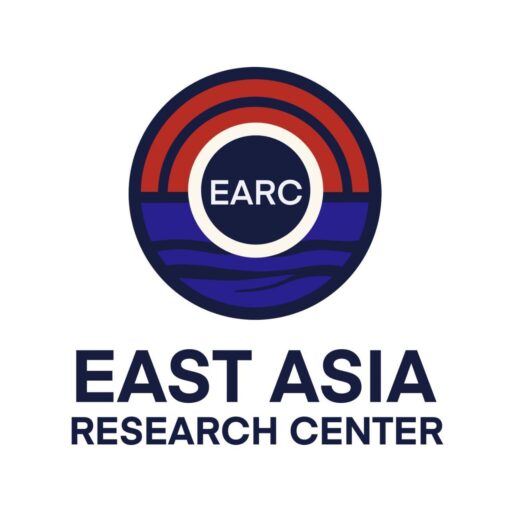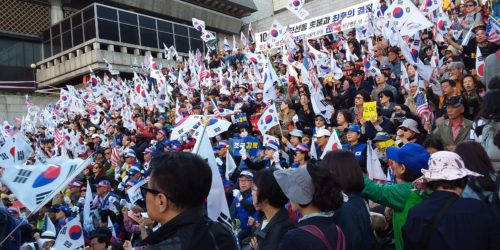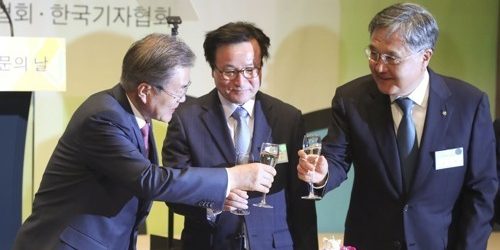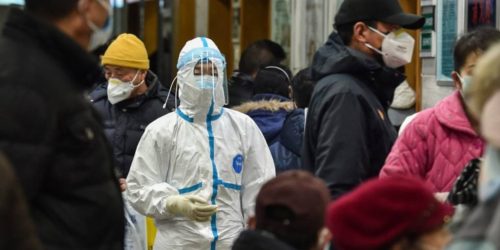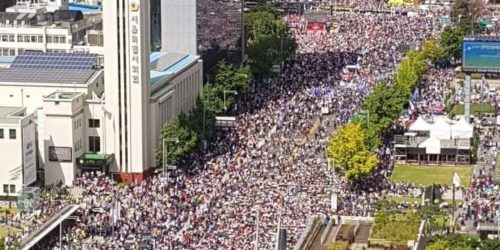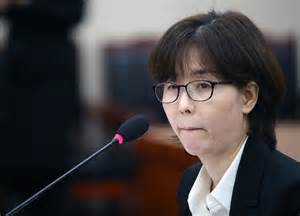Moon Jae-in Insults South Korean Veterans and Families with Kim Jong-un Photos, Rewrites History by Praising Kim Won-bong, Senior Figure in the North Korean Government
June 11, 2019, Tara O
June 6 was Memorial Day in the Republic of Korea (ROK). Two days before on June 4, 2019, President Moon Jae-in invited the families of veterans who perished during North Korean attacks (including the Korean War and West Sea battles) to the Blue House. At the luncheon tables, Moon provided brochures with photos of him and Kim Jong-un, insulting the families and the veterans who lost their lives due to the Kim family regime.
Ms. Kim Hanna (김한나), the wife of Senior Chief Petty Officer Han Sang-guk (한상국), a sailor who lost his life during the West Sea Battle of 2002, said her stomach became extremely upset after seeing the photos in the brochure. Some family members of those who lost their lives during the Korean war wanted to walk out of the room.
Kim Sung-taek (김성택), the bereaved family member of a Korean War veteran said, “While peace and reconciliation are good, first, there should be an apology from the invaders who caused the war.” Kim was referring to the recent $8 million in food aid to North Korea (via the World Food Program) that the Moon administration rushed after North Korea conducted missile tests in May 2019, and emphasized that North Korea should apologize for invading South Korea on June 25, 1950 and starting the war. The Blue House, for its part, left out that portion of Kim’s comments about the need for North Korea to apologize first in its briefing to the press. When criticized for leaving out that part of Kim’s comments, the Blue House said it was not an important part to say.
The controversy continued. Moon Jae-in gave a Memorial Day speech on June 6, 2019, in which he praised Kim Won-bong (김원봉), the former Vice Chairman of the Supreme People’s Assembly of North Korea. Moon credited Kim Won-bong for creating the Joseon Volunteer Corps (조선의용대 to fight against Japan), which Moon said was the “root of the Republic of Korea military” and “the foundation of the ROK-U.S. alliance.”
Moon stated “The Liberation Army had anarchist forces of the Korean youth underground operation battery, which was later joined by the Joseon Volunteer Corps led by Kim Won-bong, finally assembling the independence movement capacity of the nation.” Moon continued, “The combined liberation army members’ indomitable will to resist and the capabilities…have become the root of the establishment of the military of the Republic of Korea, and further the foundation of the ROK-U.S. alliance.”
In August 2015, Moon Jae-in, then the leader of the New Politics Alliance for Democracy (새정치민주연합), also showed his admiration for Kim Won-bong in Moon’s Facebook post: “As we face the 70th anniversary of independence, I want to give Kim Won-bong the country’s highest medal for National Independence Meritorious Persons and offer him an honorific drink ceremony, even if it is just in my heart.”
Who is Kim Won-bong?
Kim Won-bong fought against South Korea during the Korean War. During the war, Kim was part of the “war leadership” of the Kim Il-sung regime, responsible for censorship (with the power to prosecute and to inspect) and later in May 1952, labor (manpower mobilization and weapons production). In the early part of the Korean War, Kim Won-bong participated in the so-called “stabilization operation” of abolishing the authority of the South Korean government and transplanting the North Korean government system. For these and other efforts, he received a medal from Kim Il-sung. In March 1952, Kim Il-sung conferred Kim Won-bong with the “Medal of Effort,” North Korea’s highest award, for “meritorious service In the War of the Fatherland Liberation (i.e., Korean War) against the U.S. plunderers and their lacky.” From South Korea’s perspective, Kim Won-bong is a war criminal, said a YouTuber. (0:22)
Kim Won-bong was part of the communist party in the southern part of Korea (prior to the creation of the Republic of Korea). In April 1948 (prior to the May 1948 UN-supervised election in the southern half that created the Republic of Korea), he went to the northern half of the Korean peninsula and helped establish the North Korean government. (4:11) He was the seventh member of the cabinet, after key figures, such as Kim Il-sung, Deputy Prime Minister Pak Hon-yong (박헌영), and Deputy Prime Minister Hong Myong-hui (홍명희). Later in November 1948, Kim Won-bong, along with Hong Myong-hui, announced a statement opposing the stationing of U.S. forces in Korea.
In the January 26, 1954 issue of Kyunghyang Newspaper, an article is titled “The Arrest of a large Spy Ring, Directed by Kim Won-bong Himself,” indicating he ran agents and spies in South Korea.
Prior to Independence, he was known to have been part of the Uiyeoldan (의열단, Heroic corps), which was created in November 1919 to conduct anti-Japanese activities. In the early 1930s, he created the Alliance to Reconstruct the Communist Party of Korea (조선공산당재건동맹) and the Joseon Minjok Revolution Party (조선민족혁명당). (2:29) His activities leading up to the creation of the South Korean (Republic of Korea, ROK) government and North Korean (Democratic People’s Republic of Korea, DPRK) government and his activities after their formations have been consistently anti-ROK and pro-DPRK.
Even during the colonial period, the Uiyeoldan, known as the anarchist organization, received funds from the Soviet Union, via COMINTERN (Communist International). The organization focused on violence, such as assassinations and bombings. (2:25) Later, Kim formed a brief alliance with the provisional government, but friction developed due to Kim’s emphasis on violence. Ahn Chang-ho, an independence activist and a key founding member of the Korea Provisional Government in Shanghai, warned Kim “do not use bombs thoughtlessly…and avoid adventurous actions.”
In 1938, Chinese government under Chang Kai-shek approved the formation of the Joseon Volunteer Corps–the one that Moon said was Kim Won-bong’s creation. (2:50) The Joseon Volunteer Corps was integrated into the Chinese military structure, received assistance from it, and had Chinese officers in the chain of command. (2:55) In effect, it was part of the Chinese military. (9:09) It focused mainly on non-armed activities, such as propaganda leaflets. Due to heavy internal dissention, a part split off and was folded under communist Mao Zedong three years later. (3:10). This split faction was called the Yeonan faction. As such, Moon’s assertion that this group is the “root of the ROK military” and the “foundation of the ROK-U.S. alliance” is false and not supported by evidence.
Kim Won-bong eventually rose to be the Vice Chairman of the Supreme People’s Assembly, but was purged by Kim Il-sung in 1958 when Kim Il-sung purged the Yeonan faction of the communists.
Why is Moon Jae-in Fixated on Bestowing National Honor on Kim Won-bong?
Kim Won-bong has not been a well-known figure until recently, but he is receiving attention because the Moon administration has made efforts to find people with communist backgrounds to bestow honor and to exonerate from their anti-ROK activities in the name of “reassessing the past,” stated a YouTuber Jisigui Kal (sharp edge of knowledge). (0:29)
When the controversy arose around Moon’s statement about Kim Won-bong, there were online comments in South Korea that claim that there is not enough evidence to describe Kim as a communist, and that there is no relation between the Korean War and Kim Won-bong. (1:01) There was already a movie titled “Assassination” about him made in South Korea, which portrays Kim in a positive light. (0:40) Despite vast evidence that Kim worked against South Korea, various narratives were created through movies, government statements, and online comments to create or change public opinion. According to a Realmeter poll (which should be assessed with skepticism due to the lack of transparency surrounding its methodology and survey questions), those who support conferring Kim Won-bong with the honor of “Independence Meritorious Person” status were 42.6% and those opposed were 39.9%.
If the South Korean government reassesses and bestows the nation’s honor on Kim Won-bong, then anyone else who had a similar anti-ROK and pro-DPRK background too could be recognized as “Independence Meritorious Persons” and cannot be criticized for working against South Korea and its system of liberal democracy and capitalism, according to Jisigui Kal. (1:10) The father of National Assemblywoman Sohn Hye-won, formerly of the Deobureo Minjoo Party (Democratic Party of Korea), who recently received such an honor from the Moon administration after six prior rejections, is an example of such a case. For more on Sohn’s father, who was a communist activist who went to North Korea and joined North Korea’s Korea Workers’ Party, and who received the “Independence Meritorious Person” status from the Moon administration and generous benefits for his family, see here.
Another concern is that such a reassessment of North Korean leaders and those who wanted to bring communism to Korea could condition people into thinking that such a system is not so bad, and perhaps even acceptable. This move, In effect, makes cultural heroes out of enemies and murderers of the South Korean people.
Memorial Day in South Korea is a day to remember and honor those who sacrificed their lives to defend the people, values, and the system of the Republic of Korea. Moon Jae-in’s praising of Kim Won-bong and forcing the Kim Jong-un photos on the veterans’ families, especially on the occasions marking remembrance of the fallen, is an affront to not only the veterans and their families in South Korea, but also to those from the 16 Sending States of the United Nations Command. Why does Moon want to rewrite South Korean history?
